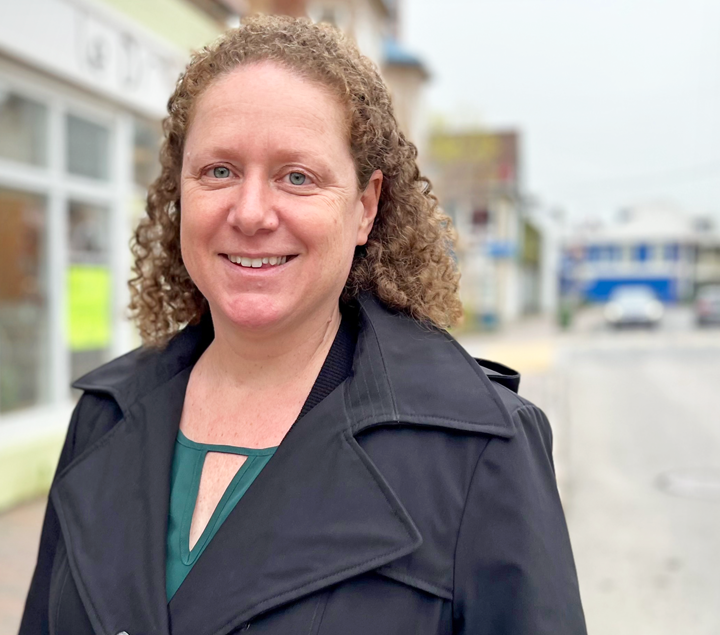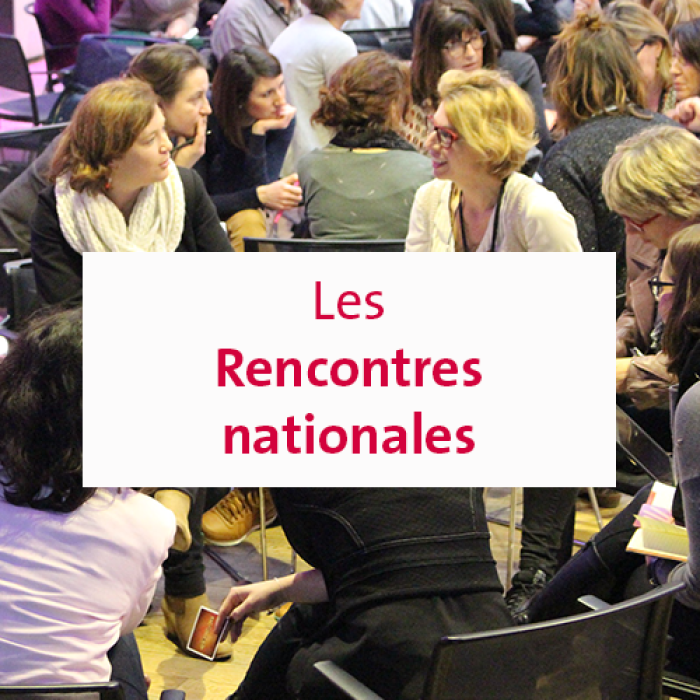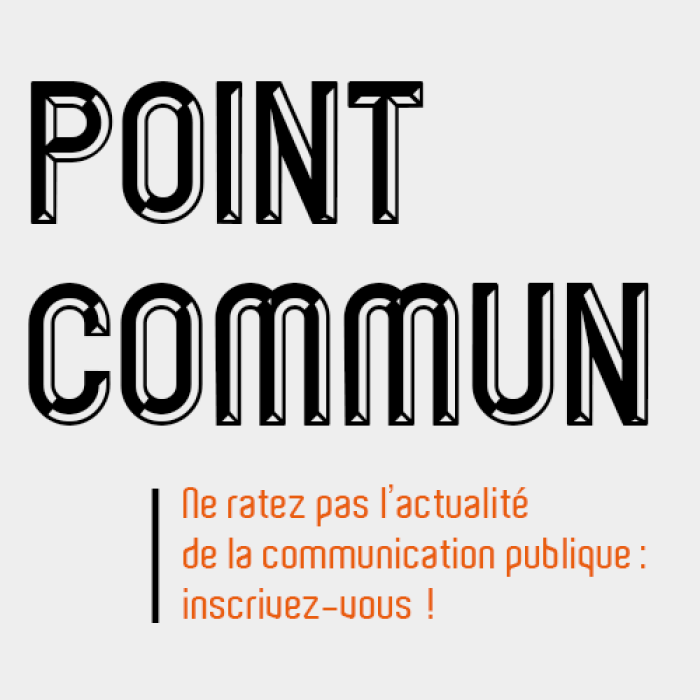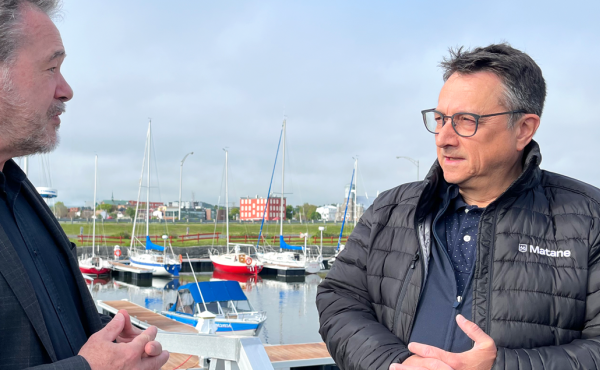
Her assistant is an artificial intelligence!
On the south bank of the Saint-Laurent River in Quebec - Canada, Kim Bergeron, communication and public affairs adviser at the La Matanie Regional County Municipality (a community of municipalities), is working on prompts to help her on the job. She won’t be beaten by the untamed nature of the Gaspésie region, nor by ChatGPT: she has everything under control!
Point commun: Could you describe La Métanie to me in a few words?
Kim Bergeron: On nearly 3,400 km2, for 21,334 residents in 2023, the territory of the Regional County Municipality (RCM) (a community of communes) is situated in Quebec, near the shores of the Saint-Laurent River estuary. The central town, Matane, with a population of 14,316, is surrounded by several other municipalities. We’re beside the sea. The RCM also administers a very large unorganized territory (UOT), as it’s called, which is governed as if it were a municipality, but without a distinct municipal council. The RCM council acts as the municipal administrator for the UOT. This is where we have an animal reserve, among other things. It’s very, very vast, with mountains, forests, moose, etc., so there’s hunting, fishing and also logging.
But the majority of municipalities are beside the sea, or on the edge of a river, because we’re at the junction of the Matane River and the Saint-Laurent River.
Point commun: How many staff work at the RCM?
Kim Bergeron: The RCM employs around 40 people. There are regional development advisers, but we’re also in charge of the environment, forestry, the management of residual matters, and we have a fire safety department with 4 or 5 full-time firefighters and around 50 part-time firefighters. And we have municipal inspectors, urban planners, etc.
Point commun: Regarding the communication function within this RCM, how many of you are there? What communication tools do you use, and what are your missions?
Kim Bergeron: I’m the only communications adviser at the La Matanie RCM and it’s the same in several RCMs, as I noted at the symposium of the Association des communicateurs municipaux du Québec (ACMQ). On the other hand, in my RCM, there are several people, in particular in regional development, who have communication skills and conduct communication initiatives. My role is to guide and support them, make sure that they have all the tools they need to operate effectively in their communication or promotional projects or for events. I approve the projects and the graphic designs, so I’m the last person and sometimes also the first person to look at them, because I support them when they draw up their communication plan. I try to give them as many tools as possible.
Several people have skills and abilities and carry out communication actions. It’s my job to guide and support them.
Most of them have those particular skills and I guide and support them. Others need a bit more coordination. I also take care of my own communication plan for the county regional municipality (MRC) of La Matanie. For example, I’ll go and present short columns on the radio to explain certain job fields and demystify certain things so that everyone has a clear understanding of the MRC’s missions.
Point commun: How did you come to grips with the new functions and the new services that AI could bring to your work?
Kim Bergeron: To begin with, when this new type of tool comes out, we do tests, have a bit of fun, and soon understand how it can become a useful tool in our work. For me, it’s mainly for writing (I’ve tested AI for images, but there are little flaws and it’s soon apparent that it’s artificial). As far as the text goes, I think it’s a very useful tool. For example, I produce summaries of council meetings for local councillors so I can be sure they have all the information. We know they’re not going to read the minutes in full. So we make summaries. But sometimes it can be heavy going to sum up a document as colossal as the minutes of a meeting in a few pages. So I use ChatGPT and ask it to make me a condensed version. Then, based on that, I can more easily, and especially more quickly, make a summary of the minutes.
Point commun: How long ago did you do these tests?
Kim Bergeron: It’s quite recent. About a year and a half ago, I started to look into it, not just for this particular example but for writing speeches and avoiding the blank page syndrome. When I start to write a new piece, I launch a prompt such as “I want a speech that will be delivered to such and such an audience, I want a formal tone of voice, with the usual greetings”. Obviously I never use that text as is. I systematically rework it. That goes for Facebook posts too. On social media, ChatGPT does a very good job (and can even add emojis).
We can also give it just a theme to develop over five days and AI will propose posts that are totally appropriate in their wording and in the chronology.
Point commun: How do you come to grips with AI in these everyday applications?
Kim Bergeron: You need to pay attention to the different use cases, because the tone of voice that ChatGPT uses (or Gemini, which I’ve also used) will always be the same. And it will tend to impose a vocabulary that is standard or possibly even inappropriate. It always suggests the word “delighted”. That’s a word that we seldom use in Quebec. So we need to eliminate the word “delighted”. I’m constantly aware that it’s just an assistant and not there to replace me. But I make sure I give it the right instructions so that it works. You can even ask ChatGPT to produce engaging posts. AI will produce questions that we can use to prompt people to reply. We can also simply give it a topic to develop over a few days, such as public safety, for example. For five days, it will put forward opinions, messages to catch attention, posts that are totally appropriate in their wording and also in the chronology. The fact that AI is capable of suggesting variants that are just sufficiently different from each other, and which really enable us to deal with a single topic in five posts, is an asset. So I take the ideas and then rework them. And that feeds me. Because I’m the only person at the MRC handling communication, it’s as if it was my personal assistant. I can save a lot of time that way, instead of spending my time writing and trying to plan things.
Point commun: Has AI really freed up time for you to do other things?
Kim Bergeron: Absolutely, it frees up a lot of time for me. I mentioned the blank page syndrome a little earlier: it’s unbelievable how much time I can save. Obviously I’m the one who supplies the ideas to the artificial intelligence, and the ideas are already there, in the council’s resolutions and the RCM’s various documents. If we have to write a speech to present the cultural policy, I’ll take the main points from the cultural policy and feed them to the AI so that, in return, it gives me a text that creates links between the points of the cultural policy. It’s great. So we’ll have access to different formulations that we might not have thought of, since we all have our own linguistic field, our own language. It takes me somewhere different, though I don’t take all of the ideas onboard. Afterwards, I always rework the text to be sure that we really have something suitable and personalised. Yes, it saves me time, but it also frees up mind space. It gives me free time for all of the other projects.
Without AI, I wouldn’t have time to do everything. I’d have to let go of my communication plan.
Without AI, I wouldn’t have time to do everything. I’d probably have to drop certain things. I’d have to let go of my communication plan for the La Matanie RCM. That’s always what gets left till last! Because there are always events in two weeks’ time, deadlines we have to meet, urgent matters that crop up... Things that I can’t just drop. When I can free up a little bit more time, it enables me to arrange my own communication plan, which is more about circulating general information that is not time-bound and not essential either. So my mission – to spotlight the RCM and publicise its duties and services – benefits in the end.
Point commun: Do you talk to your colleagues about this artificial intelligence? Maybe they think your job has changed?
Kim Bergeron: Several colleagues of mine also use artificial intelligence, so we’re definitely on the same wavelength. For the moment, I haven’t seen any opposition from the elected representatives. Everyone is intrigued by AI. We’re well aware of its pitfalls, but I think we’re curious to see what we can gain from it. It’s quite widespread, not hidden; I even think it’s totally accepted. I also get someone to read my summaries of council meetings. I’ve provided an audio version so that city councillors who don’t have time to spend an hour reading a text can listen to it in their car. I provide an audio version that is read out... by artificial intelligence! And it’s done very well. The tone is not the same; I can even choose Quebec voices. It’s interesting: I think everyone is starting to come to grips with AI and see the potential it holds. What I do with it is still a very limited, basic sort of usage.
Point commun: Do you pay to use this AI tool?
Kim Bergeron: We have a paid subscription, but initially I used the free version and I thought it did a perfectly acceptable job. I understood that, as far as data confidentiality was concerned, even the paid version wasn’t completely secure. But when you don’t pay for a tool, you’re the product, in the end. The paid version offers a world of possibilities that I haven’t explored yet. The ability to import a PDF file rather than copy and paste a text (one of the functions I was interested in) is now included in the free access. So we can import several press releases to show the AI how they are written. Then, after that, it will be able to guide us and produce a bespoke text that corresponds to the way we express ourselves.





